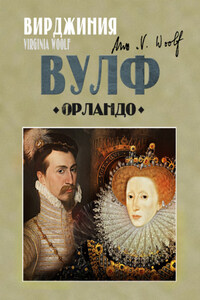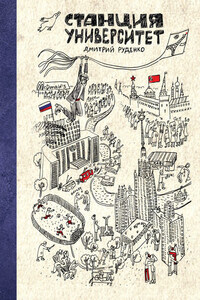CHAPTER I
A MODERN ARCADIA
Certain portions of England yet remain undiscovered by Americans and uncivilised by railways. Colester village above King's-meadows, in a county which need not be named, is one of these unknown spots. No doubt before long the bicycle and the motor-car will enliven its somnolent neighbourhood, but at present it is free from the summer jaunts of tourists. With this neglect the Colester folk profess themselves satisfied. They have no wish to come into contact with the busy world. This prejudice against intrusion dates from mediæval times, when strangers rarely came to the village with peaceful intentions. Even now a chance comer is looked upon with suspicion.
Mr Richard Pratt said something of this sort to the vicar during a morning ramble, some six weeks after he had taken up his residence in The Nun's House. With the parson and the gentry of the parish Mr Pratt agreed very well, his respectability having been vouched for by Mrs Gabriel, the lady of the manor. But the villagers still held aloof, although the newcomer did his best to overcome their churlish doubts. They did not credit his story that he had settled in Colester to pass his remaining years in peace, and even the money he scattered so freely could not buy their loyalty. Pratt had never met with such people before. In most countries an open purse invites an open heart; but the Colester villagers were above Mammon worship. Such an experience was refreshing to Pratt, and introduced him to a new type of humanity.
"The first place I ever struck in which the dollar is not all-powerful," he said, with his Yankee twang and pleasant laugh.
"We are not sufficiently educated in that respect," replied Mr Tempest in his simple way. "For my part, I am not ill pleased that my parishioners should refuse to worship the Golden Calf."
"There is no calf about me, I guess," said Pratt, grimly, "and very little gold. I don't say I haven't a decent income, but as to being a millionaire – no, sir."
"In the kingdom of the blind the one-eyed is king, Mr Pratt. You are a millionaire in this poor place. But I fear you find it dull."
"Why, no, vicar. I'm glad to be out of the buzz. The world's made up of nerves and machinery nowadays. At fifty-two years of age I can't stand the racket. This Sleepy Hollow's good enough for me to stay in until I peg out. Guess I'll buy an allotment in that graveyard of yours."
"Hollow!" said the vicar, smiling, "and our earthly dwelling-place is set upon a hill! Mr Pratt, I suspect you have Irish blood in your veins."
Pratt laughed, and being to a large extent devoid of humour, explained earnestly that he had used the word figuratively. "Washington Irving, Rip Van Winkle," he explained, nodding, whereat the vicar smiled again.
The situation of Colester was striking and strange. A green-clothed promontory extended abruptly from the high table-land into King's-meadow. To right and left chalky cliffs of considerable height flared away for miles, forming a buttress to the moors above and walls to the plains below. In pre-historic ages the ocean waves had beaten against these cliffs, but, gradually receding, had left dry the miles upon miles of fertile lands now called King's-meadows. An appanage of the Crown, they had been called so from the days of William the Conqueror.
From where they stood, the vicar and his friend had a bird's-eye view of this desirable land, unrolled like a map under the bright June sky. League after league of corn-fields stretched away to the clear, shining line of ocean; and amidst the ripening grain appeared red-roofed villages, clumps of trees, the straight lines of dusty white roads and the winding, glittering serpent of the river. And as a background to this smiling plenty – if so Irish an expression be permitted – was the blue expanse of the Channel dotted with the white sails of merchantmen.
A small wood of ancient oaks shut off the purple-clad moor from the spur upon which Colester was built. On the verge of this, yet encircled by trees, stood the village church – a crusading chapel, dedicated to St Gabriel the Messenger. Thence the ground fell away gradually, and spread out into a broad neck of land, down the centre of which ran a road leading from chapel to village. On either side of this, amidst oaks and elms and sycamores, were the houses of the gentry. From where they ended the promontory rose into two rounded hills, with a slight depression between. On the one to the left the village was built, its houses cramped within a tumble-down wall, dating from the days when it was needed as a defence. The other hill was surmounted by a well-preserved castle, the keep of which with its flag could be seen above the oak woods. This was inhabited by Mrs Gabriel, the sole representative of the feudal lords of Colester. Yet she was only the childless widow of the last baron, and had none of the fierce Gabriel blood in her veins. The once powerful and prolific family was extinct.
From castle and village steps led down into the depression between the two hills. Down this continued the chapel road, sloping gradually with many windings to the plains below. The whole place had the look of some Rhenish robber-hold. And if tradition was to be trusted, the Gabriel lords had dwelt like eagles in their eyrie, swooping down at intervals to harry and plunder, burn and slay the peaceful folk of the plains. A turbulent and aggressive race the Gabriels. It had defied king and priest, and parliament and people. Time alone had ever conquered it.














